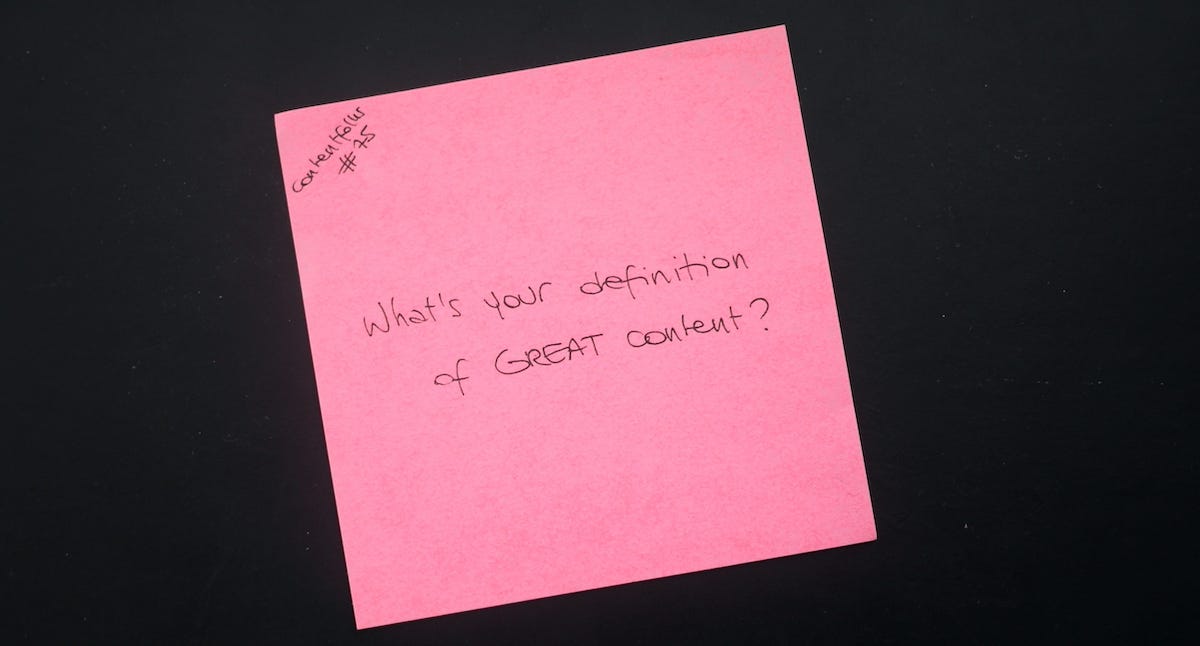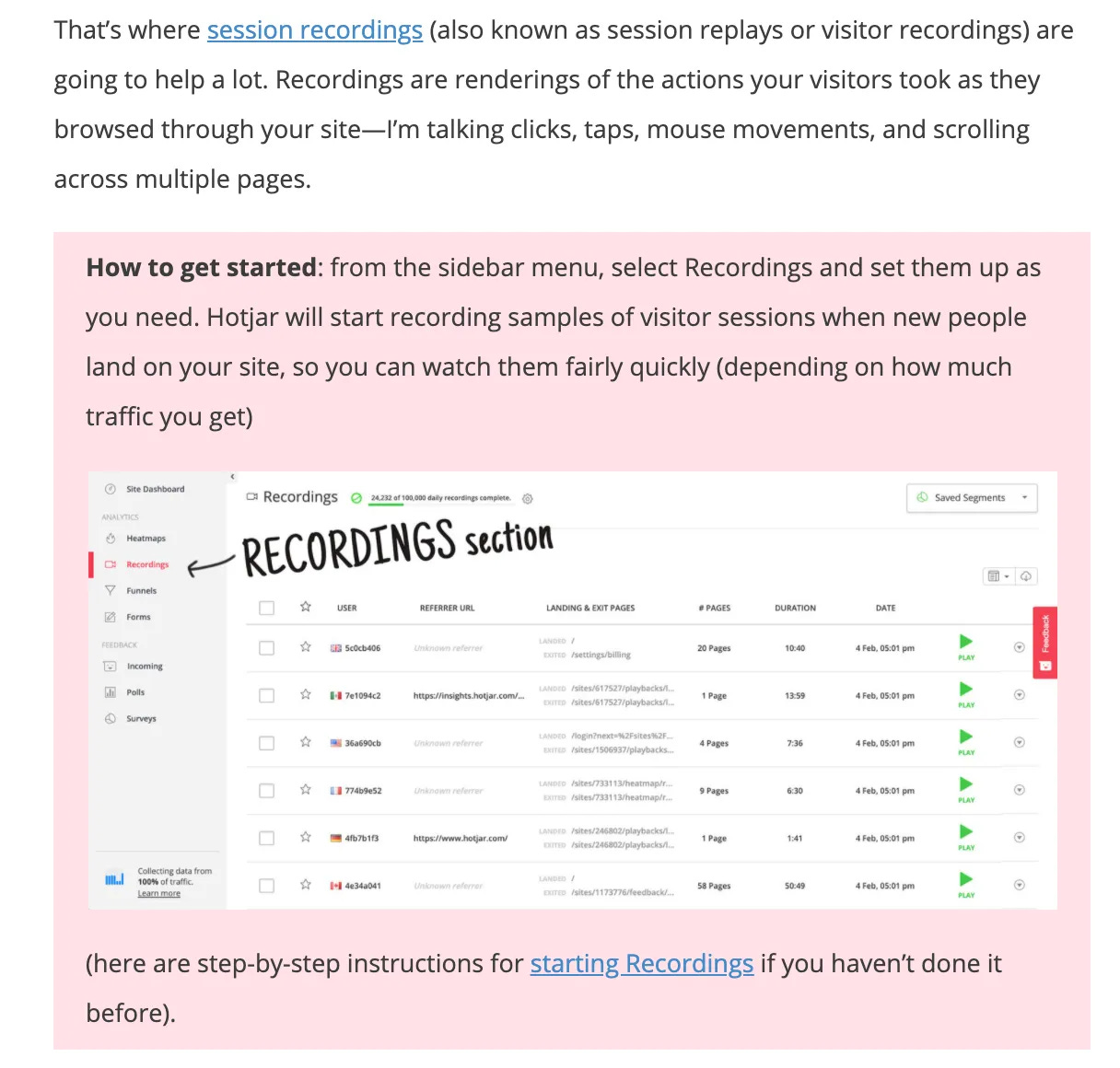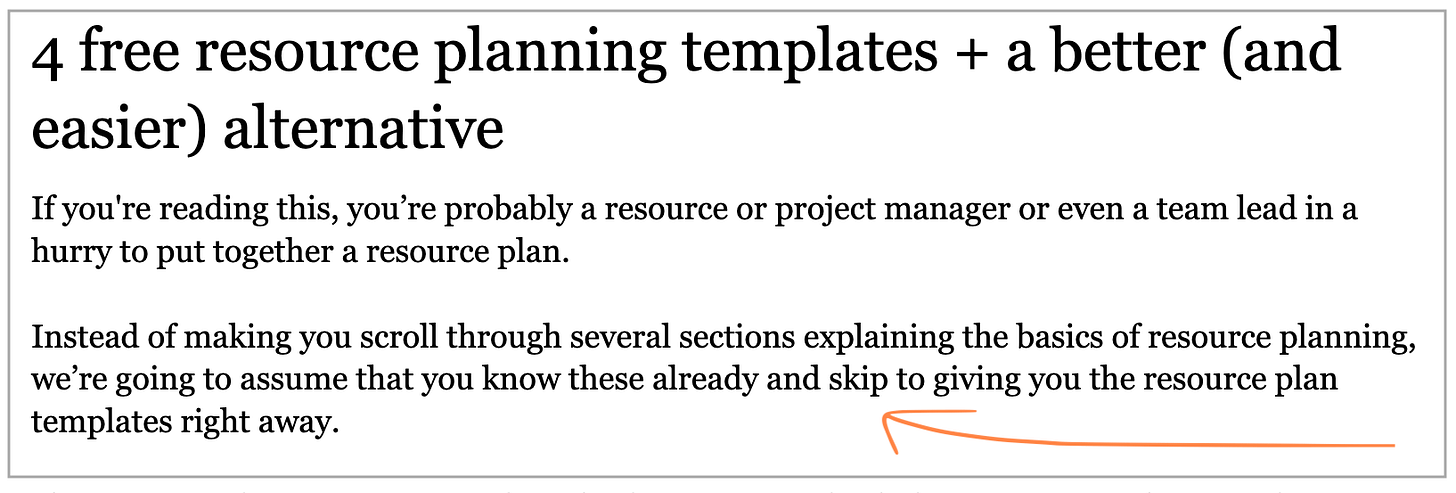cf #75: what’s your definition of GREAT content?
mine is EASY: Expert, Actionable, Simple, Yours
You are reading contentfolks—a fortnightly blend of sticky notes, big content ideas, and small practical examples. Thank you for being here! ~fio
Hey there 👋
If somebody asked “What is your definition of ‘great’ content?” right now, what would your answer be?
I built mine over several years and many iterations… and now I’m inevitably going to share it—as you read through, it might be useful to compare my points to yours and see where we overlap vs. where we might be miles apart.
Expert, Actionable, Simple, Yours:
my EASY framework for great content
I introduced the ‘EASY’ content framework at Hotjar back in ~2018 to create alignment and guide our content creation process. I brought it to Wildbit & Postmark when I moved in 2021, and I’ve now introduced it at Float in 2023—the point being: it’s a company-agnostic framework you can absolutely take, tweak, and re-use. It helps you and your team:
Align on content must-haves vs. nice-to-haves
Hold yourself and others accountable to the same principles
Edit or give feedback on other people’s work
Bring consistency to pieces authored by different folks
The EASY acronym stands for Expert, Actionable, Simple, and Yours—and my definition of great content sits at the intersection of these four attributes.
This time, I’ll give you a ‘choose your own adventure’ style of newsletter: you can keep reading and go through each element OR you can listen to/watch me discuss them with Ramli John in this ~20-minute section of his Marketing Powerups show:

1. Expert
I won’t go all doom and gloom on you, but we all know that pretty much anyone can now publish 1,800 semi-competent words on any given topic with the click of a few buttons—and because they can, they probably are.
You, however, should not. In fact, if you want your content to accomplish any meaningful business goals in the future (build awareness and affinity, attract sales, grow revenue, etc.), this looks like an excellent time to go in the completely opposite direction: fully leaning on human expertise, and using it to build trust.
What this might look like:
Run subject matter expert interviews and use their knowledge, information, and opinions to inform your content production (here are some questions to get you started)
Talk to your power users to learn how they use your product, and weave what you learn into the content you create for potential new customers (here are some other questions that should help)
Ask internal experts for their opinions and guidance, use it, and be upfront about how it contributed to your work, like I did in this listicle:

2. Actionable
We’ve all landed on that blog post—the one that vaguely suggests we do something without telling us anything about how we actually do it, which is both frustrating and a waste of our time because now we’re off again on Google or YouTube or anywhere that’s likely to give us some real and tangible advice.
Let’s not be the ones who put out that kind of stuff.
In my book, great B2B content has a high level of utility and helps its audience do something they care about, or at the very least signposts them towards resources that do. What this might look like:
Connect the dots for your audience and explain how to get started with something
Vet the resources you link out to and make sure they are actually useful and help people do the thing they want to do
Add “how to get started” or equivalent boxes in the flow of your content, and use them to direct people to the specific actions they need to take
Pro tip → it’s not just about the written word: a strategically placed arrow on a screenshot (like below) or a 10-second clip within a larger video can make all the difference in helping people understand when/where/how to take action
3. Simple
Despite its name, this is the hardest element to pull off. As someone who has realistically edited a couple million words in the last few years (and written, according to Grammarly, at least five times as many), I guarantee that creating tightly written & deeply considered content takes A LOT of effort.
…but then again, what else are we here for? We’re here to serve an audience, not add to their cognitive load. The principle of simplicity takes many forms, including:
Getting straight to the point, fighting the urge to over-explain or give tons of unnecessary context—just like in this excellent draft my teammate Stella submitted early this week:
Avoiding tangents, fluff, and unnecessary jargon
Avoiding idioms or references that can alienate, or at the very least puzzle, an international audience
Cutting all existing introductions down to 35% of their current length (although this one may just be me, I am a famously ruthless introduction editor 😈)
4. Yours
What this element looks like is very brand- and individual-dependent, but here is a quick way to check if your content passes the ‘yours’ test: if people landed on your page but the menu and logo at the top were obscured, would they know it’s you and not a competing brand?
The vast, vast majority of B2B content out there doesn’t pass this test—which gives you a great opportunity to differentiate yours:
If your team has strong opinions on a topic, make them known. For example: at Float, we think our product is not an alternative but a complement to existing all-in-one solutions, and you better believe I put this hot take in a nice, standalone blue box in the middle of this listicle I just published:
Think of creative or unique ways to talk about or visualise the same old topics (note: you don’t have to go all in and make a webcomic about churn as we did at Postmark… although if you can, 100% go for it)
Another thing that is uniquely yours? Your customers. Find ways to bring them into your content, in whichever format—cut clips from their interviews and weave them into your blog posts; lift verbatim quotes and add them as proof points in your onboarding emails; use their experience to write how-to guides.
So there you have it—my definition of great content: Expert, Actionable, Simple, and Yours.
What’s your definition going to be?
PS: in case you missed it, I started a 12-minute content marketing podcast that is absolutely not about content marketing—and very much about the people behind it. Look at this lineup! Imagine if all these people formed a supergroup and worked on a ‘content marketing something’ together 🤯 🤩









Hi Fio !
It's an interesting question. A hard one. I will try my best to answer :)
First point: being concise and clear enough. I agree with you that keeping things simple, in particular technical stuff, is very hard. Sometimes you make a content designed for a large audience and you have to find the middle ground between not going too deep into expertise and leaving people behind, or not going far enough and being boring.
Second point: being different. I really care about that. I am satisfied with a content when I find it to be different - in a positive way - from other popular contents on the same topic. I always try to do things differently because I believe that it is the best way to bring something new and stay in your readers' mind. I am not saying that you should do different content just to be different. You should try to find the right element to leverage, and the right way to make it differently in order to stand out.
Third point: harmony. It is hard to achieve but sometimes you write a content and when you finally read it when the work is over, you feel the harmony, as if the puzzle is complete. Everything is at the right place at the right time in the right way: the title, the photo, the text, the infographics, everything makes sense and is fluid. It is hard to feel it when it's your own content because you put so much work and passion. However, it is quite easy as a reader to experience the harmony when reading a great content. I am sure you keep somewhere these articles because it made you feel like "oh God, I wish that I had written this one".
Valentin.
Hi Fio
I just wanted to take a minute to congratulate you on your newsletter. You are so generous in your thinking and I find that your posts always meeting the EASY criteria. You’re a shining light in this space, make sure you celebrate your achievements for 23 and I look forward to being a reader of your newsletter for the months and years that follow, however short or long those may be.